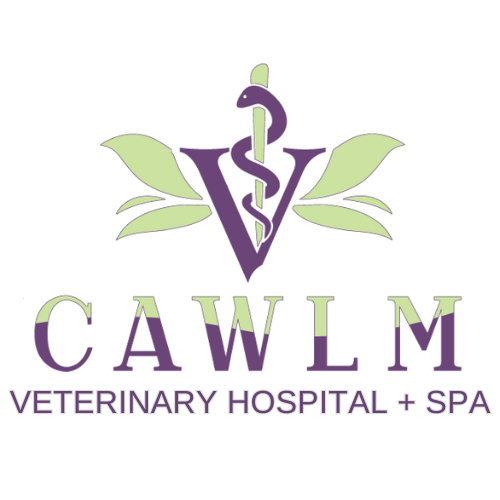Not only are your dog’s skin and coat their most apparent traits, but they are also crucial to their general health and wellbeing. Beyond appearance, a healthy coat and skin act as the animal’s first line of defense against the elements, illnesses, and bad weather. They are essential for controlling temperature, conserving water, and storing nutrients. We’ve gathered some professional advice from our staff at CAWLM to assist your beloved pet enjoy a vibrant, lustrous coat and ideal skin health.
Best Supplements
Essential Fatty Acids (EFAs)
Essential fatty acids are among the best nutrients for preserving a healthy coat and skin. Omega-6 and Omega-3 fatty acids are very important in veterinary medicine. Omega-6 fatty acids replenish skin oils while encouraging healthy cell growth and enhancing coat gloss. Omega-3 fatty acids, on the other hand, are crucial for puppy brain development and contain anti-inflammatory effects that are good for skin and joint health. Various types of omega-3 and omega-6 fatty acids, including oils, chews, and capsules, are available alone or in combination. It’s essential to take supplements from high-quality suppliers in order to maximize the advantages for your dog’s skin and coat. Based on your dog’s age, breed, and particular requirements, ask your vet for recommendations that are tailored to him or her.
Best Ingredients
Fish and Fish Oil
Fish and fish oil, which are abundant sources of Omega fatty acids, offer the vital elements necessary for preserving a healthy coat and skin. Think about including fish-based meals or supplements in your dog’s diet. To promote the health of your pet’s skin and coat,
Flaxseed Oil
Flaxseed oil, another fantastic source of Omega fatty acids, is a great alternative to pets that have an allergy to fish-based foods.
Biotin and B Vitamins
Along with Omega fatty acids, these vitamins are frequently advised since they are essential for improving the condition of the skin and coat. Dogs can safely eat foods like eggs and sweet potatoes, which are both natural sources of biotin and B vitamins. Pay close attention to the ingredient list when choosing commercial dog food. In order to support the health of your skin and coat, look for products that include these necessary nutrients.
Best Grooming Practices
Regular Brushing
Numerous skin problems, including infections, scars, hair loss, and discomfort, can result from tangled and matted fur. By frequently brushing your dog’s coat, you can avoid these issues. The optimal frequency is based on your dog’s fur’s length and thickness. If you’re unsure, ask your groomer or primary care veterinarian for advice. They can suggest a suitable brushing routine.
The benefits of brushing your dog’s coat are numerous. It also increases circulation flow to the skin, dispersing natural oils for a healthier, shinier coat while removing loose hair and preventing matting as well as mat formation. Additionally, the bonding that occurs during grooming can deepen your relationship with your animal friend.
Consider making a purchase of high-quality combs and brushes made for the sort of coat on your dog. Grooming your dog on a regular basis can become a fun ritual for both of you.
Be Observant
Visual Inspection
Simply keeping an eye on your dog on a daily basis is one of the best methods to keep track of the health of their skin and coat. You can readily spot any changes by looking at and feeling your dog’s skin and coat. Watch out for symptoms such as extreme dryness, flakiness, redness, dampness, or thinning. Any changes to your dog’s skin or coat may be a sign of underlying problems including infections, allergies, or metabolic disorders.
Regular inspections ought to go beyond the coat and focus on your dog’s ears, feet, and tail. These regions demand attention as they are vulnerable to certain skin problems.
When to Consult a Veterinarian?
It’s best to call a vet right away if you detect any unsettling changes in your dog’s skin or coat. When addressing possible health issues, early intervention is extremely important. Depending on the needs of your dog, treatment options may include dietary changes, antibiotic medication, medicated shampoos, or other therapeutic procedures.
Make a commitment to your veterinarian to provide regular skin and coat care. Your dog’s veterinarian can evaluate your dog’s overall health and handle any new skin or coat issues during routine wellness appointments. Together, you can design a personalized care regimen that guarantees the healthiest possible skin and fur for the duration of your pet’s life.
Conclusion
The proactive maintenance of your dog’s skin and coat extends beyond looks; it is an essential component of their general health. You can assist your furry friend have a glossy, vibrant coat and keep their skin in top condition for the duration of their life by giving them the proper nutrients, using proper grooming techniques, and doing routine checkups. Do not be afraid to ask for advice and assistance from your veterinarian when necessary. Keep in mind that they are your partner in ensuring your dog’s wellbeing.
A lifetime of happiness, comfort, and companionship for you and your cherished pet can result from making today’s investment in the health of your dog’s skin and coat.

